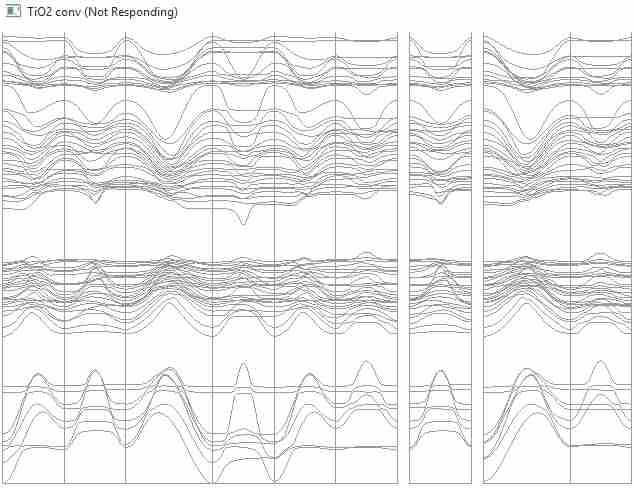In Semiconductor Physics, one of the main parameters of interest is the band gap. It is known that, in DFT, there are functionals that underestimate it.
I came across the MOPAC program, a semi-empirical quantum chemistry program based on Dewar and Thiel's NDDO approximation, that have two utilities to work with periodical system.
The picture bellow shows the bands calculated for $\ce{TiO2}$:

The problem is that, as MOPAC is not for periodic systems, it is a little difficult to calculate the bands with it (it is mandatory to leave the calculations windows open and you can not move the mouse). But, the gap was in agreement with the experimental value :).
Is there any other software with semiempirical methods available to calculate the electronic structure of periodical systems?